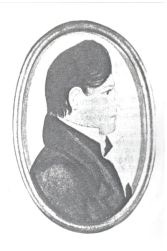


Many of root lineages of the early colonists were British. Evidently, the opposition to British rule and the desire for an improved lifestyle was prevalent because people emigrated to the colonies in great numbers. After centuries of monarchy rule and class divisions the British had a distinct poverty class of persons without hope of improvement. Yet, persons with rank and title also came to the colonies, bringing their servants with them. Although still under British rule, the colonies were subjected to tariffs and other typical civil laws enforced by royal governors. They suffered through a number of regulations which prevented trade with the Dutch and other countries. Too, the receipt of goods into any port extracted toll fees upon the landing of the vessel. It does not require much imagination to realize that by 1775 the colonists resented the imposition of further regulations as well as the Stamp Act. So much for British rule!
As he redcoats landed upon American soil, they proceeded to take charge of ports and to persuade various Indian tribes to fight with their hatchets and tomahawks against the colonists. There is no doubt about it, the British possessed a vicious nature against the British-Americans during the war. Certain officers gave no quarter. Such is the case of Sir Banastre Tarleton who viciously cut down a South Carolina militia company with swords after it held up the white flag of surrender. Tarleton was an officer whose cruelties and reputation of not taking prisoners followed him into battle. The rumor of his giving no quarter to the South Carolinians quickly spread throughout the colony. As a result, additional soldiers from the back country enlisted in the militia. And they were determined to whip him at the Battle of Cowpens. After the Americans won at Cowpens, the tide of the war changed. Then there was "Bloody Bill" Cunningham who served as the commander of a Tory militia in the South Carolina back country during the fall of 1781. He had first enlisted in the Continental Army (South Carolina 3rd Regt), but later joined the British who were defeated at the Battle of King's Mountain. Cunningham began his career with the British by leading a raid to massacre of a small body of rebels at Cloud's Creek and quickly gained the reputation of being violent and ruthless. The British kept their agreement that Cunningham should serve two years, before he was duly discharged. While the British entered low country, Cunningham returned home where he encountered an ongoing conflict between the Whigs and Tories. A local Whig (Capt. Ritchie) who had fought with Cunningham received word that if Cunningham returned to Ninety-Six, that he would be killed on sight. So it was that Cunningham hid out for two years. It was not until 1778 that Cunningham reappeared on the scene. After receiving word that a group of Whigs had kicked his father out of his house and whipped his invalid brother to death, Cunningham took his revenge by killing Capt. Ritchie. After the war, Cunningham claimed that his reason for joining the redcoats in the first place was that he was promised the promotion to first lieutenant and the right to resign should the action move into the low country.
Benedict Arnold. The fateful story of this traitor will never be forgotten. Although he'd enjoyed success in certain American battles and possessed the worthy reputation of a general, when he did not receive the expected promotions in rank, became bitter and resentful. Thus, his desire to advance his own career coupled with the fact that he did not believe the Americans would win the war, drove him to turn traitor.
more articles . . . The Battle of AlamanceThe Brave General Isaac Gregory of Fairfax HallOrphan Boy Fights Major Battles during Revolutionary WarThe Siege of CharlestonThe Battle of Cross CreekThe Treatment of British Prisoners during the Battle of Kings MountainJohn Penn, North Carolina PatriotThe Battle of Guilford Court HouseThe Battle of Eutaw SpringsThe Battle of Rockfish Branch on the Cape Fear RiverPatriots in North Carolina, a Precurser to the American RevolutionSoldier from Rockingham in Battle of CamdenMinutemen Played a Crucial Roll in the Revolutionary WarEvery Revolutionary War Pension has a StoryAn Eyewitness to the Surrender of Lord Cornwallis"Mad" Anthony WayneColonel Benjamin Cleaveland, Hero of Kings Mountain


